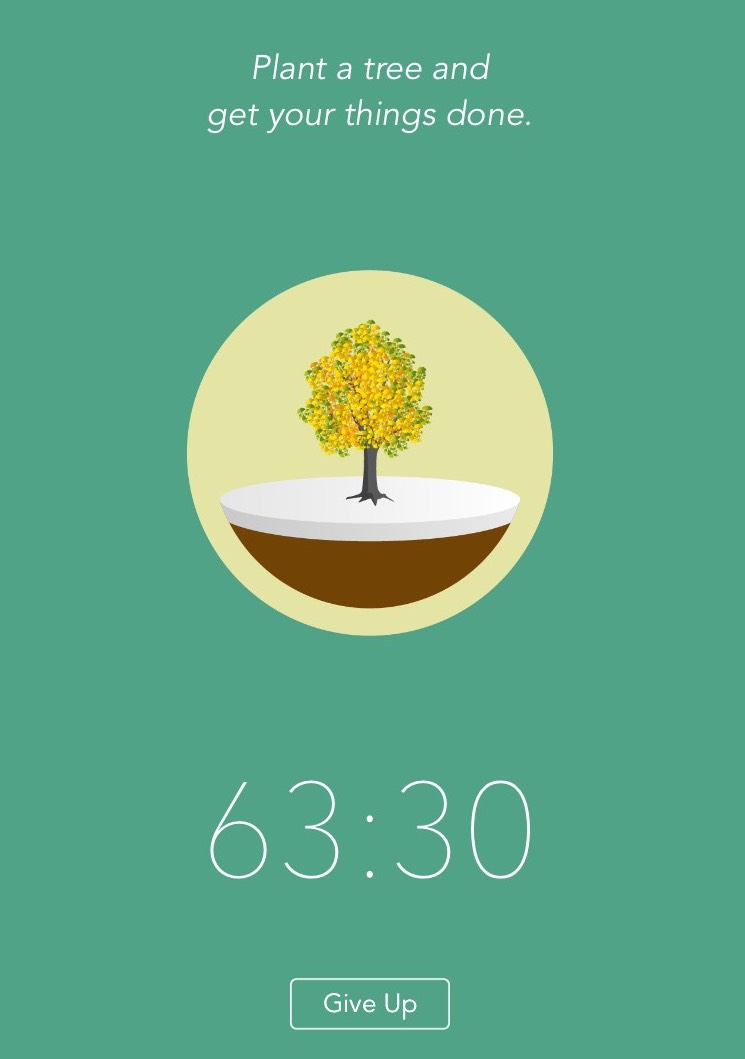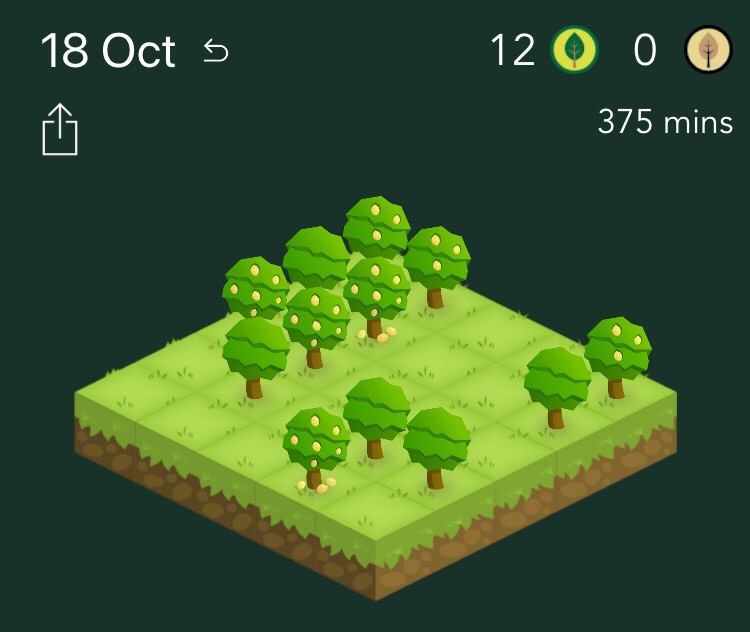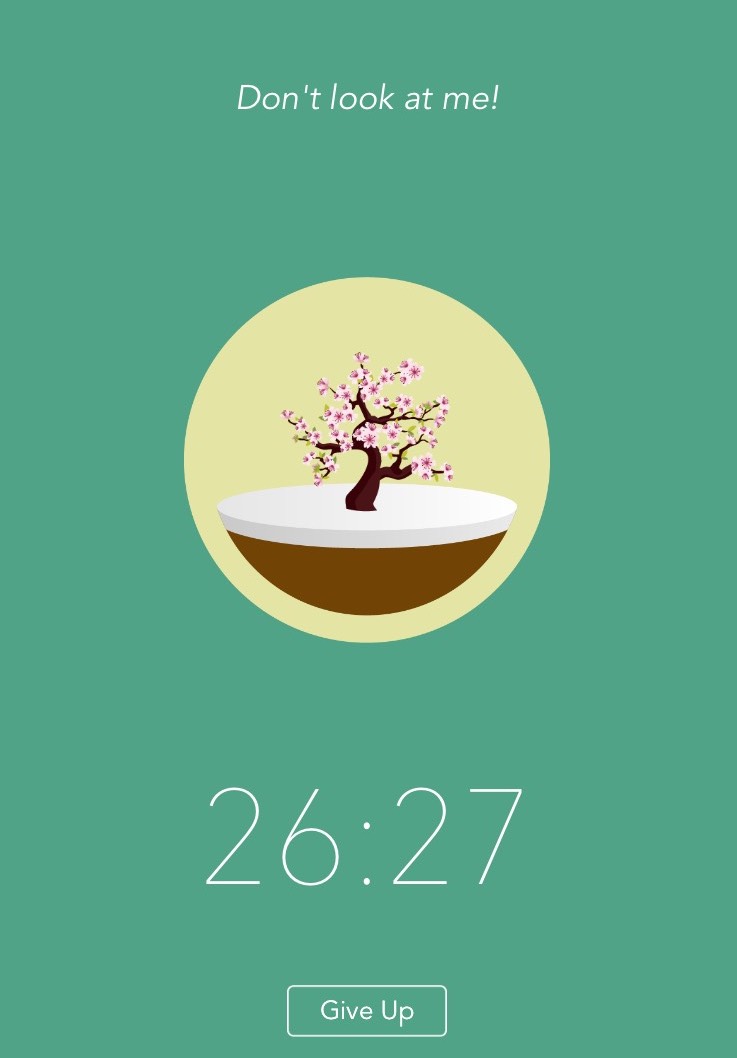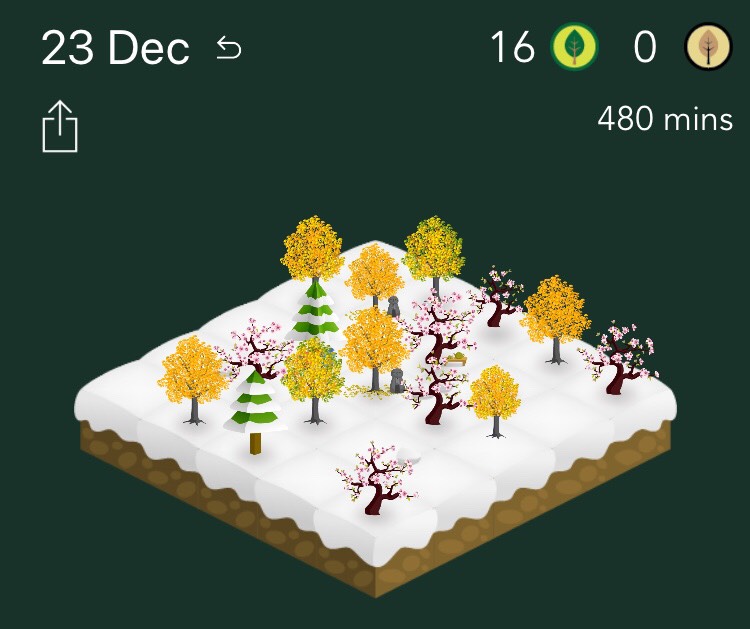Plant A Tree And Get On With Your Life
Forest, the app that doesn’t want you to use it.

I spent the first half of my twenties meticulously imagining the kind of person I wanted to be. Being very laid-back and in no way neurotic, I made lists of qualities and traits and habits I wanted to cultivate. For instance, I wanted to be a person who rose at 5:30 am without an alarm, reliant only on her finely tuned ‘body clock.’ A person who wrote ten pages freehand on a college-ruled legal pad before consuming a Spartan breakfast of unsweetened oatmeal and black coffee every day, even on Saturday. A person who never put off replying to important emails, who not only met deadlines but finished projects days in advance, not in a smug way, but just because that’s how she ‘worked best’.
But of all the traits I dreamed I would come to possess, the most aspirational was this: I wanted to become a person who never gave into—no, who never even felt—the urge to check her smartphone. I didn’t want to be a person without a smartphone—anyone could do that, and it seemed like both pretentious self-abnegation and a massive pain, baby out with the bathwater and all that. I wanted to be a person who owned a nice, glossy, convenient smartphone, but treated it like a utilitarian object, like a stapler or a shoe horn, a device that served its purpose when necessary and then was immediately, casually forgotten. I imagined myself as a person who would constantly forget where her phone even was, so engrossed would I be in my life of college-ruled legal pads and virtuous breakfasts and finished books.
Oh, the folly of youth! Who was I—a compulsively excitable, indulgent, distraction-prone night-owl, hungry for decadent breakfasts and easy stimulation—fooling? I love almond croissants and butter-laden eggs and I am weak before distraction, drawn to the bright lights and fast chatter and parading images of my smartphone. (On days I am being kind to my ego, I remind myself that these devices are designed to be addictive by literal evil geniuses, casino masterminds and conniving behavioral engineers and billionaires who wear novelty socks, and so I am not so much weak as predictable, programmable, a developer’s dream.)
Now, a highly-evolved 25-year-old who has nothing more to learn about herself, I have come to realize that you cannot ignore your nature. You have to work around it, and that work is hard. True change only comes from acknowledging your Achilles’ heel and finding a decent metaphorical podiatrist to set you straight. For me, the single most effective fix I have found, the one decision I have made that has allowed me to come closer to my idealized form, the Platonic Jennifer, is—and believe me when I say I am profoundly embarrassed to admit this—an app. A paid app. A paid app whose only function is growing tiny, adorable trees in a gridded digital forest. It is called Forest. I am pretty sure it is what Rilke was referring to in that one poem. It has changed my life. It might change yours. (This essay is not sponsored.)
I have no idea who designed Forest, but I’m pretty sure it was designed in Taiwan. The app does seemingly very little. You plant little bushes and trees in a pleasant gridded forest. Their size and shape are determined by how long you let them grow—20 minutes result in a plain green bush; 2 hours yield a magnificent, blossoming tree. The trick is this: you cannot touch your phone while your tree is growing. If you do, the app gives you a stern talking-to, evidently taking on the voice and perspective of the trees themselves (Leave me alone! Stop phubbing! Go back to work! Or, my favorite, Don’t look at me!) If you ignore the trees’ increasingly ominous warnings, and continue to touch your phone—opening another app, checking your text messages, whatever—then the tree you are growing DIES. BAM. You have a dead, withered, distraction-murdered tree permanently rooted into your peaceful, gridded forest, a symbol of your failure to put your phone down and get on with your life.

The dead trees look horrible, gnarled and pathetic, a visual depiction of your weakness. The completed trees are beautiful, serene, visions of success and prosperity. A full forest means you’ve spent the day growing trees and ignoring your phone. You get coins each time you successfully grow a tree, and then you can choose different types of trees to ‘purchase’ with your attention-span-produced currency. (My favorite is the cotton-candy tree, but the golden gingko is also nice.) Or, if you’re feeling very virtuous and have collected 2500 coins (approximately 120 not-touching-your-phone hours), you can donate an actual tree, to be planted somewhere in the real world where forests are being destroyed by deforestation. FUN!
I’ve donated real-world trees through Forest, and that feels great, but still, there is absolutely no reason why this app should work as a distraction-killer. It should be dead-easy to disobey. Who cares about pixely, twee trees growing in a stupid app! But for some reason, Forest works better than anything else I’ve tried as a means of reducing my mind-killing iPhone usage, and I have tried a lot. (I have gone so far as to build a physical prison for my phone, using a time-locked device intended to keep naughty dieters from eating cookies at night, but which I would use to literally lock my phone inside for hours on end. All life hacks are a little sad, ok?)

There is just something so satisfying, so overachiever-oriented, so compulsion-appeasing about that neat grid of trees at the end of a productive day, like a binder covered in gold star stickers, visual proof that I’ve set my phone aside and gotten on with things. It’s gotten to the point where if I text my partner or my friends ‘I’m growing trees today’ they know exactly what I mean, and understand that I won’t be reachable. This is very weird, I know. But desperate, techno-dystopian times call for desperate, techno-dystopian measures! And it WORKS. I plant a tree, set the timer, and suddenly my phone is untouchable, an art project, a game I win by forgetting I’m playing. The day—at least for the next two hours—is mine.

Self-improvement is a long, hard journey. Easy fixes are almost impossible to come by, self-discipline must be gained through hard labour and practice.
Barring that, it is available for purchase at $1.99, in the App Store.
